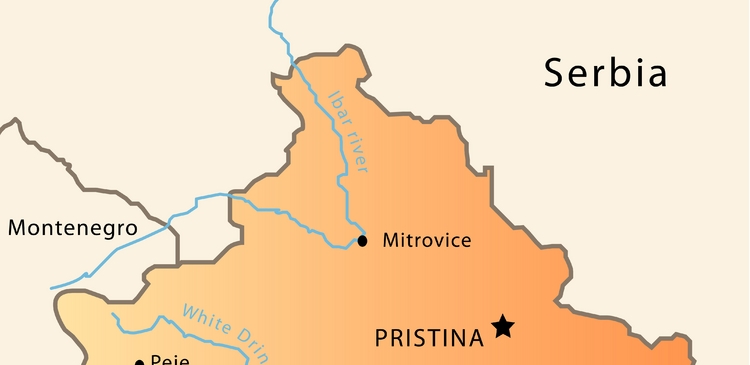
The EU in Kosovo: Learning to let go
By Tomas Valasek
Here’s a secret about Kosovo’s independence – it is not real; not yet anyway. Without outside help, Kosovo would not function today. But at the same time, the new EU mission will have to justify its presence in the eyes of the Kosovo people. It must make every effort to transfer responsibility for running the new country to the Kosovars.
At its birth on February 17th, the country lacked most ministries, or, for that matter, a sustainable economy (the official unemployment rate is around 40 per cent). A veritable who’s who of international organisations takes care of everything from sanitation to security. Some 17,000 NATO peacekeepers make sure that violence does not erupt between the Albanian majority and the 130,000 Serbs still living in Kosovo. UNMIK (the United Nation’s interim administration mission in Kosovo) took charge of most government business after the 1999 mission. As part of UNMIK, a group of officials and experts from various EU countries has run much of Kosovo’s economic policy, from devising privatisation to collecting customs revenues. About 20 per cent of Kosovo’s GDP directly depend on foreign aid. UNMIK has also negotiated regional and bilateral agreements for Kosovo, for example on trade, energy and transport. In addition, an army of volunteers working for 300-odd different NGOs look after Kosovo’s 2 million inhabitants.
So for the foreseeable future, Kosovo will need heavy international assistance, both financial and in the form of experts on the ground. But here’s the rub: staying too long may be equally, if not more, counterproductive than leaving early. And this holds especially true for the new EU mission: the 2,000 EU judges, administrators, and police, who will soon replace the UN in Kosovo. The EU gave them an ambitious mandate: they are to not only advise the new Kosovo authorities but also to ‘independently [if necessary]… ensure the rule of law”. They’ll even have the authority to reverse or annul decisions by Kosovo authorities. Kosovo may not quite be a protectorate like the one the EU runs in Bosnia. But no independent country outside the EU gives Brussels the right to annul its domestic legislation.
The EU’s extensive powers in Kosovo will be tolerated by the country’s government. Because its legal case for separation from Serbia will always be disputed, the government’s best chance for respect and recognition is to make a success of its independence. That means using EU money intelligently to build up the economy, guaranteeing the human rights of the Serbian and other minorities, instilling the rule of law and clamping down on organised crime and corruption. Pristina will need the EU’s assistance to accomplish all this, so it will strive to be on good terms with Brussels.
The people of Kosovo – that’s another story. They strove to be independent, not to end up in a situation where the EU administrators have the last say. If the EU mission is too heavy-handed, it will cause resentment among ordinary Kosovars. Already, anti-EU graffiti has appeared in the streets in Pristina. To makes matters even more delicate, the UN, from which the EU takes over, has a terrible reputation in Kosovo. In eight years of running this tiny country, the size of a small Baltic republic, it has not managed to guarantee basic services like around-the-clock electricity, despite multi-million dollar investments into the power sector. Kai Eide, formerly a high-ranking UN official, suggested in 2005 that the UN mission itself had become an obstacle to building Kosovo’s economy and governance, and he advised the UN to leave.
So the EU is marching into a quandary. Kosovo needs its help and assistance – and the EU needs Kosovo to succeed. But by trying too hard, the EU could make a bad situation worse. The only thing worse than a Kosovo poor and badly governed is a Kosovo poor, badly governed, and hostile to the EU. For the EU to make its Kosovo mission a success, it needs to treat Kosovo with caution and respect. It needs be firm with Pristina if the government fails to respect minority rights and root out crime and corruption. But otherwise, it should try to reduce interference and concentrate on building up local administrative capacity. At every step, the EU needs to make clear to the Kosovars that it is there to help with the transition, not to permanently set the agenda.
Lastly, the EU needs to demonstrate its usefulness to the Kosovars, to show that its presence there makes a material difference to their lives. The EU should not assume that Kosovo’s dependence on foreign aid and expertise in itself justifies its mission in the eyes of the local population. A couple of tangible successes would help. None would probably be more important than finally fixing the electricity grid, thus giving Kosovo’s economy a much needed boost.
Tomas Valasek is director of foreign policy and defence at Centre for European Reform
